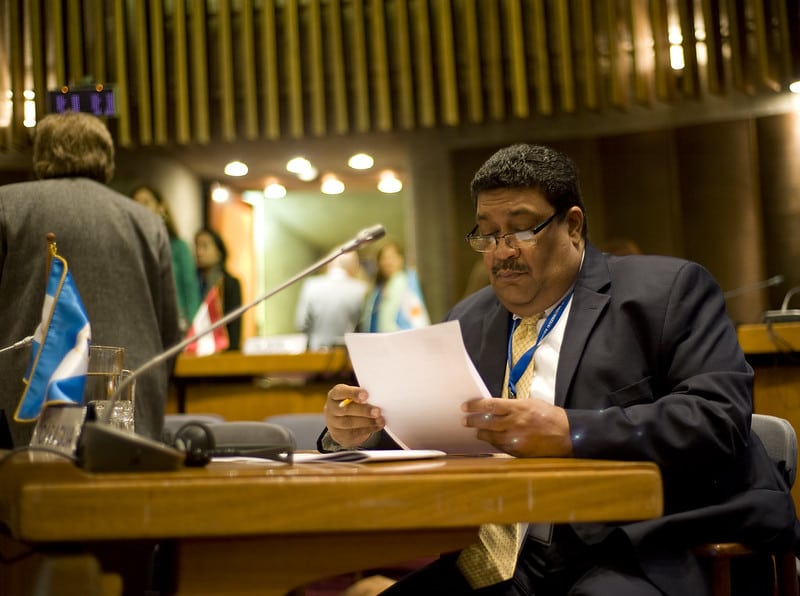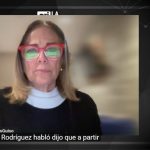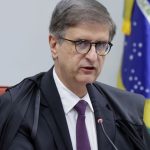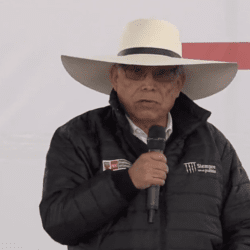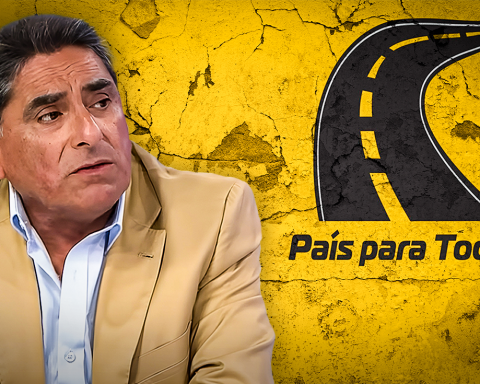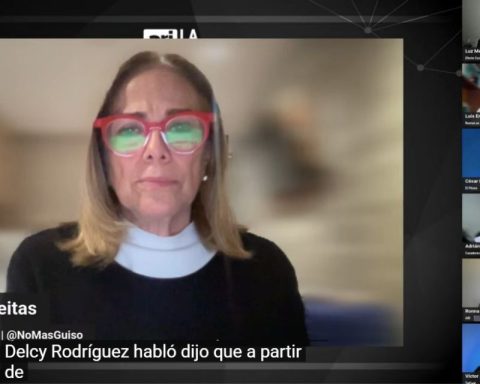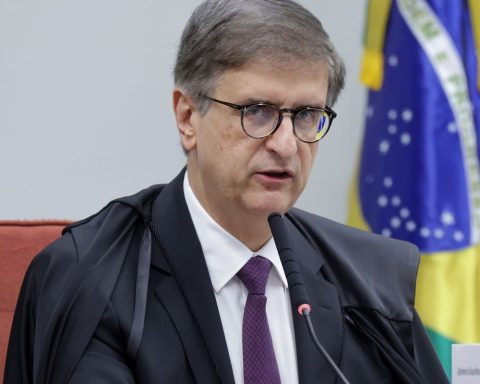On February 23, 2021 Valdrack Jaentschke was dethroned from his power on the Chancellery of Nicaragua after 14 years as Vice Minister of Foreign Affairs and holding, simultaneously, 15 positions in the diplomatic ranks. His departure was an unappealable decision by Rosario Murillo, vice president, spokeswoman for the regime and wife of Daniel Ortega.
Six months later, when some of his opponents in the government thought he had fallen from grace, Jaentschke He reappeared as a political operator of the regime in Central America, with the permission of Murillo, occupying second-level positions in embassies of key countries in which the Ortega-Murillo regime seeks to improve or strengthen its relations.
From vice minister, member of the financial economic cabinet, and representative before the Association of Caribbean States, Jaentschke became the new “minister counselor with consular functions” in Guatemala, when the Administration of Alejandro Giammattei, pressured by the United States, was debating between support Daniel Ortega in the SICA crisis, or condemn him in the OAS for human rights abuses.
He arrived in Honduras in Decembere of 2021, as ambassador of Nicaragua, before Xiomara Castro assumed power, an ally who remains by Ortega’s side amid the international turmoil against him. Now him 7 daysIn July 2022, he was reappointed as “counselor minister” in Costa Ricabefore the new government of Rodrigo Chaves.
The same day of his appointment in San José, the departure of former ambassador Duilio Hernández and his resignation from the diplomatic service was confirmed —still without any explanation— and thus —without the need for a Costa Rican placet— the coastal man was left at the head of the diplomatic mission in a venue of special interest to the regime, due to the critical position that Costa Rica has maintained in the face of Ortega’s authoritarian drift and for the hundreds of thousands of Nicaraguans who have taken refuge in that country, fleeing repression or seeking economic improvement after the aggravation of the human rights crisis.
Valdrack Jaentschke: “Skillful, intelligent and sinister”
Valdrack Jaentschke he is a “skillful and intelligent” political operator and I would add —for these two reasons— a third trait: dangerous” maintains a source from the civil society sector who has known him for more than two decades.
Five other people who know his background closely, and agreed to speak on condition of anonymity, describe him as: a dancer and funny, but he can also be sinister and conspiratorial; with experience in intelligence, backed by his past in the former State Security General Directorate (DGSE) in the eighties, during the first government of Daniel Ortega.
His appointment in charge of the Nicaraguan embassy in Costa Rica is attributed to at least three “specific missions”: the search for a rapprochement with the Executive by Rodrigo Chavez; the lobbying with Costa Rican businessmen and deputies to “normalize” the relationship with the Ortega dictatorship; and the least public of all: conspiring against the opposition and civil society.
“He has conspiratorial capacity; if it obtains economic resources to carry out actions, it will do so. It will also agglomerate people who are from the FSLN and are in Costa Rica,” said one of those consulted.
Valdrack Ludwing Jaentschke Withaker was born on August 22, 1959 on Isla del Maíz (Corn Island), in the paradisiacal South Caribbean of Nicaragua. He is the only child of a middle-class family made up of an accountant, Valdrack Jaentschke Hall, who worked at the Corinto port authority and the United States embassy in Managua, and Zelda Whitaker Campbell, a woman who “was reluctant to speak in Spanish”, despite “living much of his life in the capital”, according to a biographical note, published in the creole international magazine in May 2019.
State Security Officer
A source who was linked to the FSLN described Jaentschke as “a militant who usually rides the wave to make the most of where he arrives”.
He entered as an officer in the General Directorate of State Security (DGSE) of the Ministry of the Interior, in the area of ”fight against gangs” in rural areas of Nicaragua, in 1983.
The immediate boss of that unknown young man from the coast was the current Sandinista comptroller Vicente Chávez, a soldier loyal to Ortega and to the espionage structure installed in the country under Cuban advice.
“Later they moved Chávez from his position and Rodolfo “Payín” Castillo remained as his boss. Jaenstchke was very humorous, but not outstanding. Then he got lost, because they sent him to the Honduran Embassy. That is the reason why there are people who remember him in Directorate V”, of special operations abroad, directed by Colonel of Cuban origin Renán Montero.
Another member of civil society assured that one of Jaentschke’s functions in Honduras was to collect information on the Contras and the Somocistas. “He has always been willing to do anything. piggyback to comply with their bosses,” he added, referring to a loyalty scheme that remains among the old DGSE cadres, even though decades have passed since the official closure of that directorate. “He is a kind of lodge, loyal to Lenín Cerna, who is also loyal to Ortega, despite his differences with Murillo,” affirms a former member of the FSLN.
In parallel, Jaentschke devoted himself to his university studies and was recognized for his academic ability.
He graduated from the UCA with a degree in Sociology in 1991 and with the support of the rector Xabier Gorostiaga (RIP) managed a scholarship to continue his training in the United States, obtaining a master’s degree in Public Administration and International Affairs at the University of Pittsburgh, in 1994.
Icon of civil society in the 90s
In the mid-1990s, he began his career as a consultant and directed the Center for Strategic Studies (CEEN), whose objective was to promote civic-military debate and contribute to the professionalism of the Armed Forces, one of the great issues in Nicaragua after the civil war of the eighties.
The former Minister of the Interior, Carlos Hurtado, participated in the CEEN directive, as well as José Adán Guerra, Ex minister of Defense, the former colonel Javier Pichardo, the former official of the Managua Mayor’s Office, Silvio Plata, and the former Contra Salvador Talavera.
Thus began his career as an icon of the nascent civil society organizations during the governments of Violeta Barrios de Chamorro, Arnoldo Alemán and Enrique Bolaños, from 1990 to 2006, to later become an implacable persecutor under the Daniel Ortega regime.
The now high-ranking official of a regime that attacks international cooperation and condemns civil society organizations as “foreign agents”, of “interventionism”, a At the end of the 1990s, it stood out as an interlocutor of civil society to manage the financing of projects with US funds.
Valdrack Jaentschke managed millionaire USAID funds in the NDC
In 1999, Jaentschke and his then-wife Patricia Gomez assumed the direction of the NGO Nicaraguan for Development Center (NDC), an umbrella organization to channel USAID funds to promote the development of civil society organizations with a budget of eight millions of dollars.
According to a report dated June 1, 2000, on the participation, institutional and citizen strengthening program for the National Assembly, hosted on the official website from the US agencyNDC was a “managing unit” of a program to strengthen human rights NGOs and civil society in Nicaragua.

In that document, which deals in general terms with a plan to provide technology to Parliament, the need to create a directory of civil society organizations is mentioned, for which the “head of the party” consulted with NDC, “an NGO that is coordinating a major USAID-sponsored NGO strengthening initiative.”
A member of the Advisory Board, which reviewed NDC projects, explained that the NDC strengthening program emerged in the last years of former President Arnoldo Alemán (1997-2001). They got engaged eight million dollars for a five-year period in three specific investment areas: democracy, governance, and indigenous and Afro-descendant peoples.
“There were funds subject to Advisory Board, but others that they could use on a discretionary basis. In the latter there were many irregularities. The program did not reach two years of life, ”he indicated.
Another informant familiar with the management of NDC confirmed that the acquisition of real estate, without authorization, caused annoyance. “I heard that it had been closed due to mismanagement of funds,” he commented, “and AID decided to cancel the program, without public accountability.”
Civil society promoter at UNDP
After the collapse of the NDC, in 2003, Jaentschke worked in the training program for governance leaders of the United Nations Development Program (UNDP).
Under the direction of Alfredo Missair, in 2006, he was promoted as coordinator of the Caribbean Coast area, until in January 2007, after the presidential elections won by the FSLN, when he joined the Government of Daniel Ortega as vice chancellor.
Jaentschke joined a team of officials and ministers from lto Caribbean Coast that correspond to a quota of power for the Sandinista electoral magistrate Lumberto Campbell.
“His political godfather in the Ortega government has always been Lumberto Campbell,” the source said.
Spokesperson for Ortega’s repression
The new logic of the Sandinista government, inaugurated in 2007, was to pressure governments and development agencies to centralize cooperation and close the spaces for participation by civil society organizations.
Jaentschke actively supported the first wave against non-governmental organizations in 2007 and 2008, in which the government attacked the Communication Research Center (Cinco), the Autonomous Women’s Movement (MAM) and the Civil Coordinator, among others.
In 2016, the Ortega regime expelled the UNDP representative, Silvia Rucks, from the country and canceled the cooperation programs of this United Nations organization – in which Jaentschke worked for more than three years to strengthen civil society – and accused without any proof of being infiltrated by opposition political parties.
Following the outbreak of the April Rebellion in 2018, Jaentschke stood out for maintaining a line of defense for Ortega in international forums, justifying the repression that left 355 dead, 2000 wounded, hundreds of political prisoners, and hundreds of thousands of exiles.
With the issue of human rights violations on the international news agenda, in September 2018, former Vice Minister Jaentschke held a conversation at the Inter-American Dialogue (DI), moderated by Michael Shifter. Among the attendees, he caused outrage when he said that the Executive of Nicaragua avoided with its action in the protests “a civil war”.
In the video in English, which can still be found on the DI page, a woman in the public called him a “liar” and denounced the abuses of the security forces. However, according to the unflappable official, the protests in Nicaragua “derailed the efforts of the Nicaraguan people and their government por achieve democracy, economic and social growth”.
Four years later, the documented cases of human rights violations continue to go unpunished. Former Vice Minister of Foreign Affairs Valdrack Jaentschke, always a political protégé of Lumberto Campbell, took office as the new chargé d’affaires in Costa Rica, but his goal is much more ambitious.
According to a source linked to the FSLN coastal group, “his greatest aspiration is to be appointed ambassador of the Government in Washington, where the current ambassador Francisco Campbell has presented his resignation three consecutive times, but it has not been accepted.” The last word on the final political fate of Jaentschke, Rosario Murillo has again.
